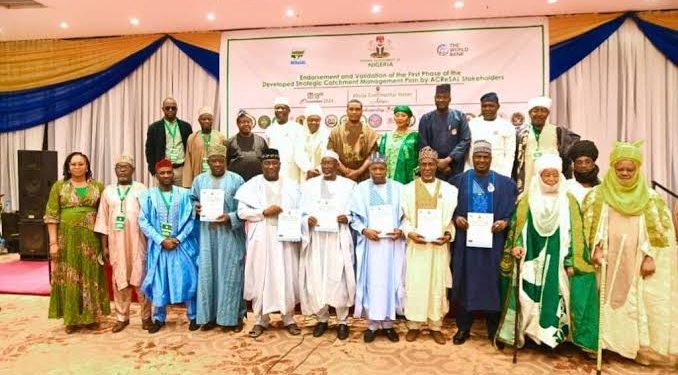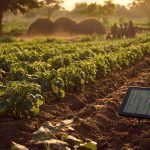The Nigerian government has unveiled plans to expand the World Bank-supported Agro-Climatic Resilience in Semi-Arid Landscapes (ACReSAL) project as part of a broader strategy to strengthen food security and climate resilience nationwide.
The announcement was made during a high-level retreat in Lagos by the Minister of Environment. The minister emphasized that ACReSAL, originally focused on the 19 northern states and the Federal Capital Territory, is already confronting major environmental threats such as desertification, degraded farmlands, and climate-driven agricultural challenges. He stated that the government is now exploring how to scale its impact beyond these regions.
A key focus for the project’s expansion is rainwater harvesting. The minister highlighted this as a vital strategy to support year-round farming, reduce overreliance on rainfall, and improve water availability for forest restoration. By turning excess rainwater into a resource, he noted, communities can reduce the risks of flooding while enhancing agriculture and ecosystem sustainability.
The Minister of State for Agriculture and Food Security also commended the project’s progress, saying that efforts under ACReSAL have already helped communities adopt climate-resilient farming techniques and restore vast areas of degraded land. He linked the initiative to the federal government’s broader Renewed Hope Agenda, which places strong emphasis on agricultural reform and national food security.
Representing the World Bank, the ACReSAL Task Team Leader expressed confidence in the project’s direction. She reported that nearly 200,000 hectares of land have already been restored in the first two years of implementation. Success stories include the use of regenerative farming methods in Adamawa and flood control measures in Katsina and Kaduna—interventions that have improved farmland productivity and saved lives in disaster-prone areas.
ACReSAL is a collaborative effort involving the federal government, 19 northern states, and the FCT. It is coordinated through the Ministries of Environment, Agriculture, and Water Resources and focuses on dryland restoration, local community resilience, institutional capacity-building, and long-term sustainability.










